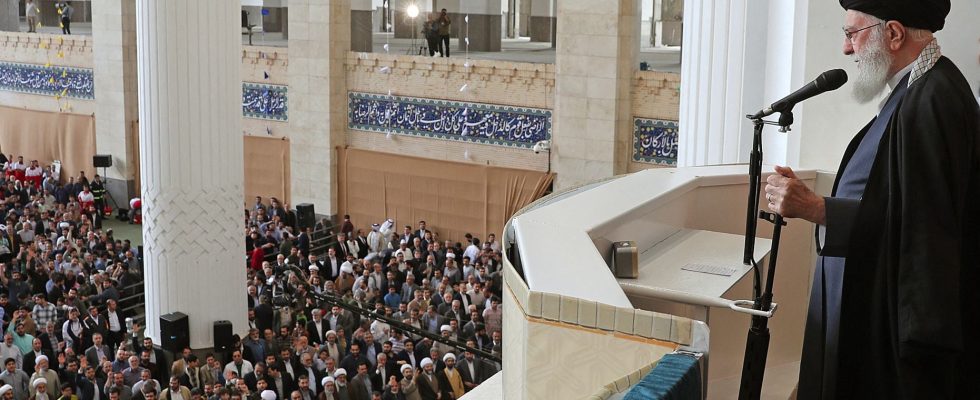The war in Gaza is causing a new outbreak of fever in the Near and Middle East. Iran “threatens to launch a significant attack against Israel,” Joe Biden said on Wednesday. The American president assured his ally of his “unwavering” support, despite tensions between the two countries surrounding the conduct of the Israeli offensive against Hamas.
The White House said Thursday that it had “warned” Tehran, repeating that the United States’ support for Israel’s security was “ironclad.” Secretary of State Antony Blinken spoke by telephone with his Chinese, Turkish and Saudi counterparts, calling on them to pressure Tehran against any attack targeting Israel, according to the State Department.
In a concrete sign of tensions, the United States announced Thursday that it would restrict the movements of its diplomatic staff and members of their families in Israel out of concern for security. “As a precautionary measure, U.S. government employees and their family members are not permitted to travel outside the Tel Aviv, Jerusalem and Beersheba areas until further notice,” according to a notice issued by the United States Embassy in Jerusalem. U.S. government personnel are, however, permitted “to transit between these three areas for personal travel,” according to the notice.
In addition, a US general in charge of the Middle East, Michael Erik Kurilla, is in Israel to discuss “security threats in the region” with the country’s military leaders, the US Department of Defense announced on Thursday. According to Pentagon spokesperson Pat Ryder, this visit planned before the Iranian threats was brought forward “due to recent developments.”
Lufthansa takes the lead
The German airline Lufthansa, for its part, announced on Thursday that it would extend the suspension of its flights to and from Tehran, “probably until Saturday (inclusive)”, due to these tensions. “The safety of our passengers and crew is our constant priority,” said the carrier, which announced on Wednesday a suspension of its flights to and from Tehran until Thursday.
Iran’s supreme leader, Ayatollah Ali Khamenei, whose country, an enemy of Israel, supports Hamas, indicated that Israel would be “punished” after a deadly attack attributed to it on April 1 in Syria. This strike destroyed the Iranian consulate in Damascus and left 16 dead, including seven members of the Revolutionary Guard Corps, the ideological army of the Islamic Republic, according to an NGO. “If Iran carries out an attack from its territory, Israel will respond and attack Iran,” Israeli Foreign Minister Israel Katz responded in Persian.
Moscow and Berlin call for “restraint”
After telephone conversations with his German, Australian and British counterparts, the head of Iranian diplomacy, Hossein Amir-Abdollahian, spoke of the “need” for Tehran to respond to the strike against its consulate in Damascus, while seeking to “avoid the tensions”. During these meetings, “I declared that Iran was not seeking to broaden the scope of the war,” he wrote on X.
“Tehran has never sought to inflame tensions in the region, but the Israeli regime’s terrorist attack […] and the silence of the United States and Great Britain encourage Israeli Prime Minister Benjamin Netanyahu to continue the war and expand it in the region,” Hossein Amir-Abdollahian said in a telephone interview with his British counterpart David Cameron, according to a press release from his ministry.
Russia and Germany, for their part, called for “restraint” to avoid an escalation in the Middle East. “We are in the middle of a war in Gaza, which continues at full speed […] but we are also preparing to face challenges in other theaters of operations, Benjamin Netanyahu declared on Thursday.
